Western Appreciation in an Eastern Land
Guess what? I’m taking home puppies! Well, sorta. My boss fosters dogs until they can find good homes and works with an organization that transports dogs to the U.S. Since I’ll be flying back soon, I offered to assist in helping dogs get to their new owners. Turns out I’ll be taking two dogs on the journey home with me, where they’ll be picked up by another organization in the U.S. and taken to their new families.
Per usual, we began the week with a staff meeting to get our ducks in a row for the upcoming anti-TIP day event. We also learned the well-water in the office is contaminated with e. coli and coliform. It’s just one of the many differences between life in Nepal and in the U.S. Even in a more developed city like Kathmandu, there are challenges that are a part of everyday life. At Hamro Samman, we are fortunate enough to have a cook who provides safe boiled water for each employee everyday, but that is not necessarily the norm for a Nepali worker. It is a remainder that despite the many advancement the country has made there is still work to be done and I am grateful to be part of an organization that is empowering the people here, even if my time with Hamro Samman is only for three months.
This week I compiled information about our partners to present at the upcoming event. Hamro Samman is announcing these partnerships, which is part of its mission to unite the government, civil society organizations, and the private sector. The guest list is really coming together and invites are being sent out to members of the government, NGOs, local media, and private businesses who contribute to anti-trafficking efforts through awareness, employment opportunities, or skills training.
This weekend, I ventured back to the farmer’s market and then explored more of Thamel. It was a lot of walking but on the bright side I got some exercise and finally finished souvenir shopping! I also found Reese’s peanut butter cups - which is a big deal, considering it’s my favorite chocolate and I haven’t had any for nearly three months. I totally paid more here than I would have in the states, but it was entirely worth the indulgence. On Sunday, I walked to shree pashupatinath temple. It was only a two mile walk, but it felt like forever navigating through mud, garbage, pedestrians, buses, dogs, and the occasional cow. Not to mention, the blistering heat. But I did make it there, only having to ask for directions once.
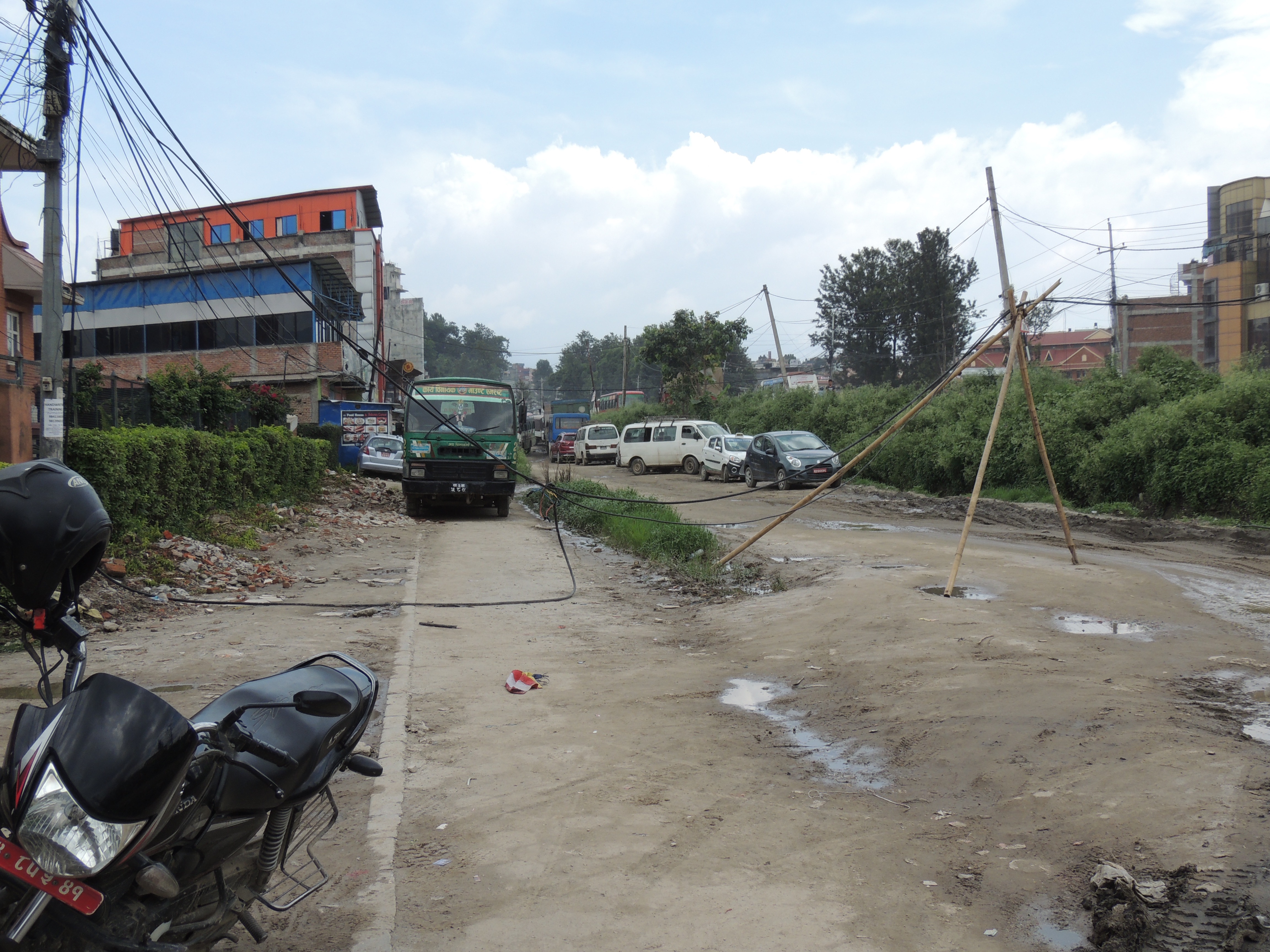
Some electrical wires held up by three bamboo poles and twine on the walk to Shree Pashupatinath.
Upon entering the area and buying my ticket a tour guide followed me around, explaining to me the various buildings and religious significance. I saw the main temple from the exterior, as only those who practice Hinduism are allowed to enter, but inside I could see an immense brass bull for worship.
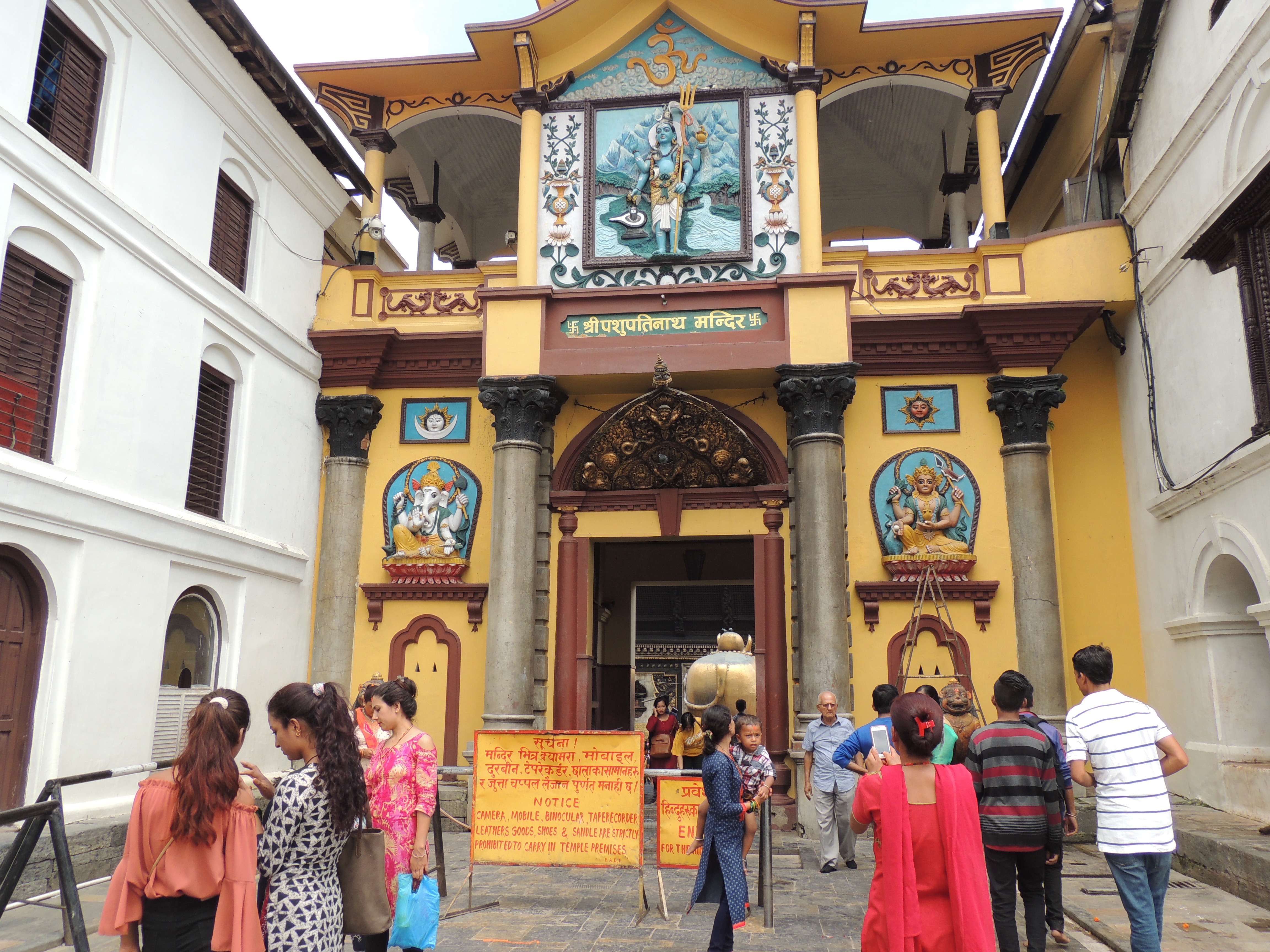
The main temple, open only to Hindu practitioners (you can see the giant bull inside the main atrium)
As we walked closer to the river I could see clouds of smoke rising and I knew it was coming from cremation ceremonies below. I was a bit nervous, as I had never experienced anything like the ceremonies and the process is handled far more discreetly in the U.S. When we got to the river, there was a platform where one body was burning and two were prepared to be burned. Thankfully you cannot see the actual people, as they're covered in a white sheet and wrapped with flowers. The bodies are then placed on a funeral pyre next to the river and the family will walk in circles around the body as part of the ceremony. Then the fire begins at the mouth (which I learned is of some religious significance - I'm assuming something having to do with breath of life or something to that effect). The body is then covered with kindling and larger sticks, and I would assume some incense.
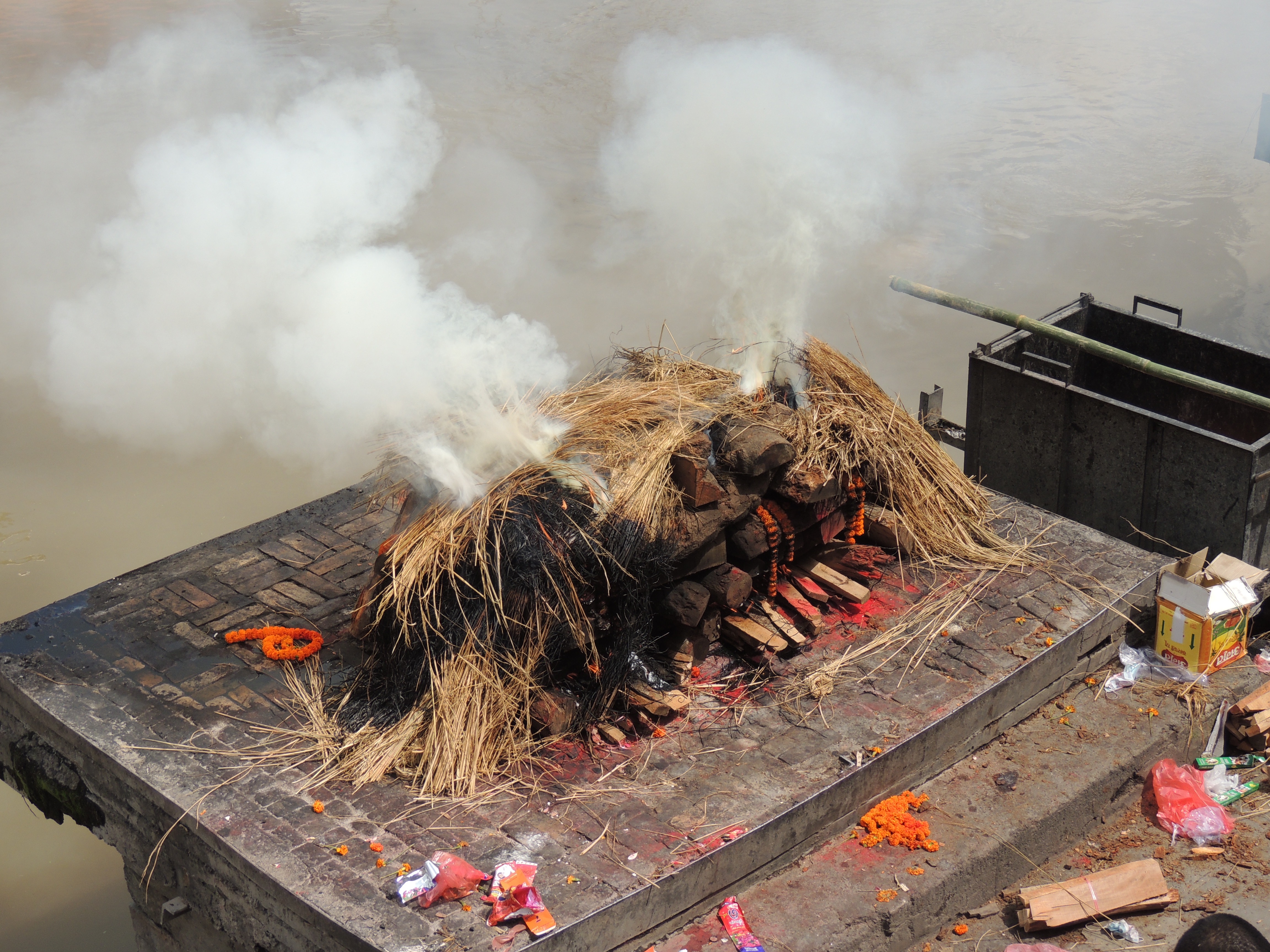
Funeral pyre along the Bagmati River in Kathmandu
The pyre burns for three hours, at which point any ashes and remains are thrown into the holy Bagmati River. I asked my guide about the water quality of the river, which was murky and filled with trash. He seemed confused, and perhaps a bit off put, by my question and only said "Ma'am, this is the culture." So I left it at that, certainly not wanting to offend. My guide lead me to a larger procession, where one of the remaining members of the monarchy was being cremated. A lot of people had gathered to watch and a military salute was played in his honor.
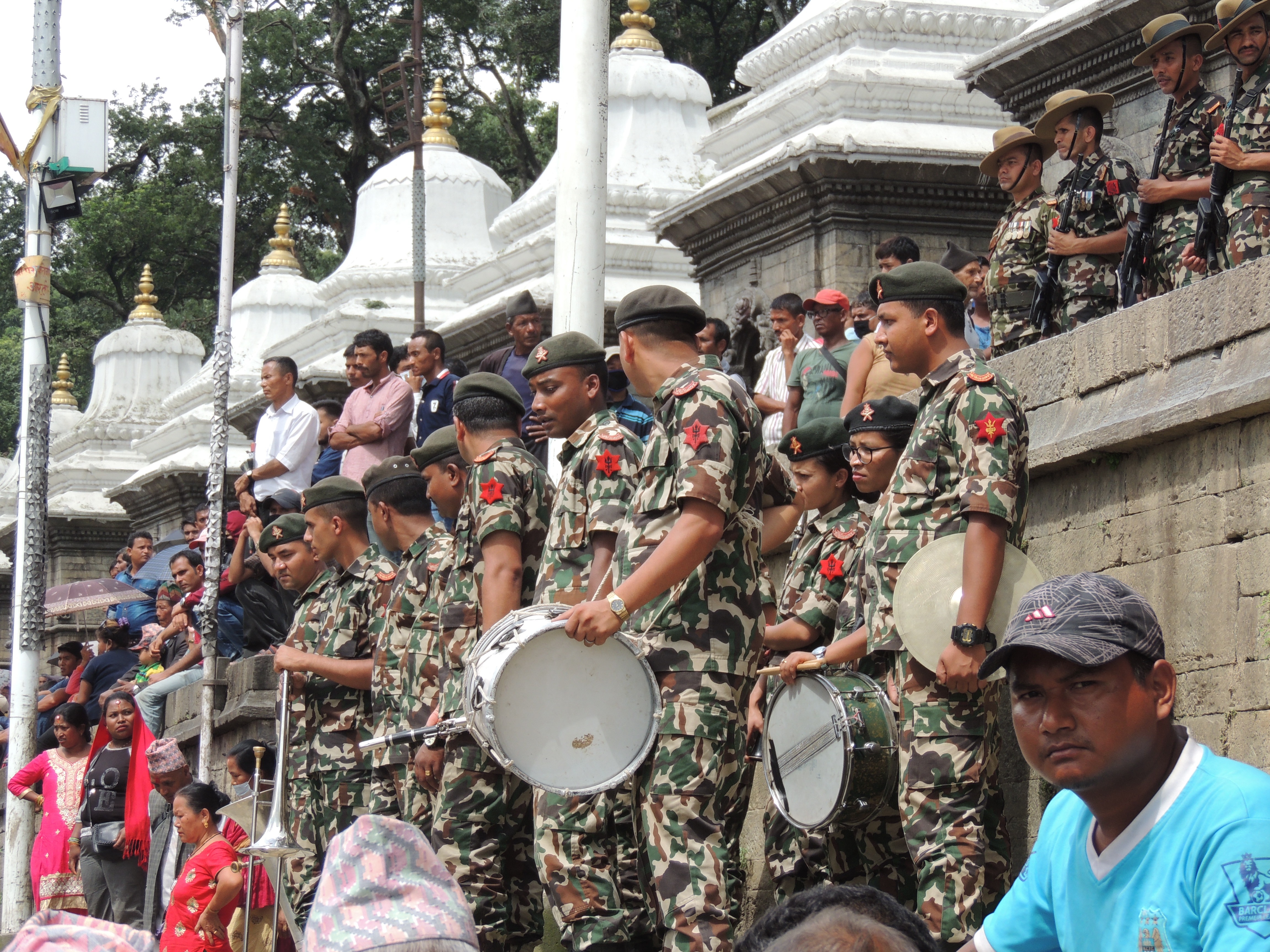
Nepalese military band playing at a funeral
It was fascinating to learn about Hindu culture and their belief in reincarnation and how those beliefs play into the intricacies of their ceremonies. It is difficult to reflect on our own mortality, yet the people of Nepal embrace it as a part of life and a cycle that serves a purpose greater than our physical presence.
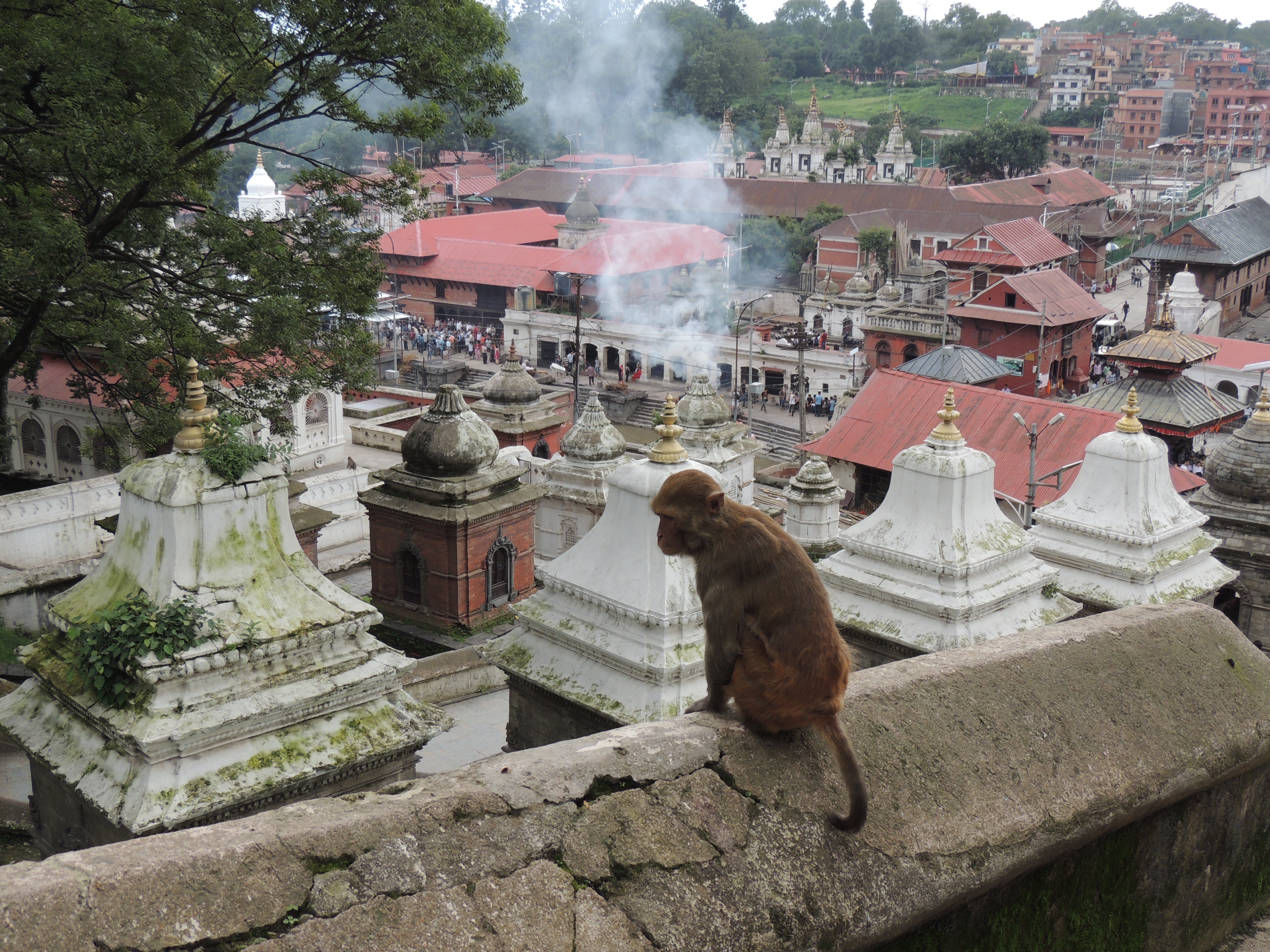
The view of the Shree Pashupatinath Temple compounds (and another monkey)